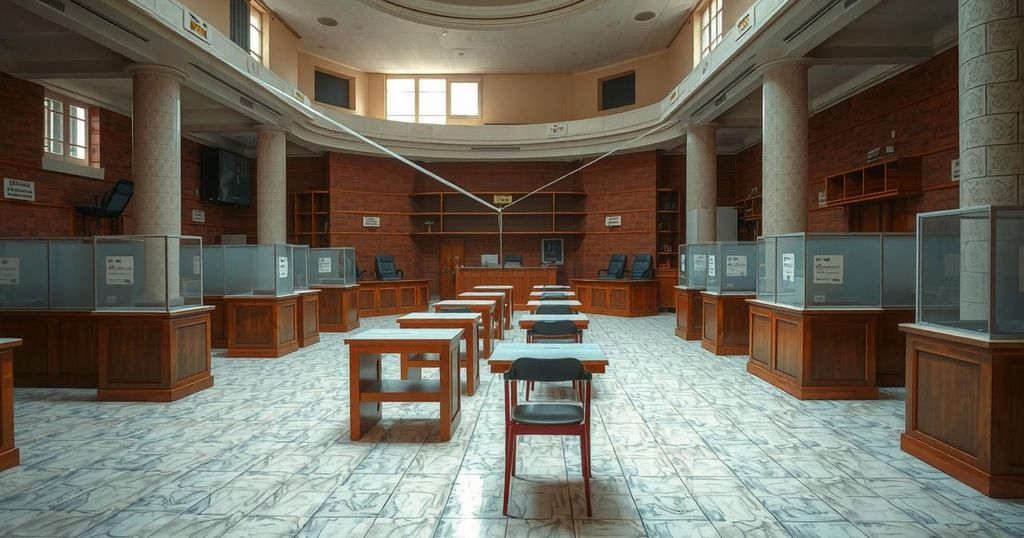Chad’s parliamentary elections saw low voter turnout due to a boycott by the main opposition, alleging a lack of credible electoral oversight by the transitional military government. This election, the first in over a decade, follows a disputed presidential vote and marks the end of a three-year military transitional phase. Concerns over election legitimacy persist as citizens await results amidst ongoing security challenges.
In Chad, parliamentary and regional elections were held amidst a notably low voter turnout, significantly marked by a boycott from the main opposition parties who alleged a lack of credible electoral supervision. This election concludes a three-year transitional period from military governance and is the first parliamentary election in over ten years. Mahamat Idriss Deby, who leads the junta and assumed power after the death of his father, former President Idriss Deby Itno, has reinforced the electoral process as a move towards restoring democracy. However, many citizens, including prominent opposition party members, have expressed skepticism regarding the integrity of the elections, declaring it a mere continuation of Deby’s dominance. While the outcome is anticipated in approximately two weeks, the elections are critical for Chad, which has faced numerous security challenges over recent years and aims for a more decentralized governance model that has long been desired by the populace.
The recent elections in Chad are pivotal as they represent a potential shift towards democracy following years of military rule. For over three decades, political power was held by the Idriss Deby family until the military took over in 2021 after his death. The transitional military government’s promise to restore democracy has faced criticism for its implementation, leading to the opposition’s decision to boycott the electoral process. Voter turnout has been fraught with challenges, reflecting a broader sense of disillusionment among the population regarding the electoral integrity and the ongoing political transition.
In summary, the parliamentary elections in Chad occurred under a cloud of skepticism and low voter participation due to the opposition’s boycott, fueled by allegations of an unfair electoral atmosphere. This election is a crucial juncture for the nation’s governance, seeking to end transitional military rule that has lasted for three years, yet its legitimacy remains questioned by many within the country. As the citizens await the election results, the future of Chad’s governance hangs in the balance, impacted by security concerns and the ongoing participation of the opposition in the political landscape.
Original Source: apnews.com






